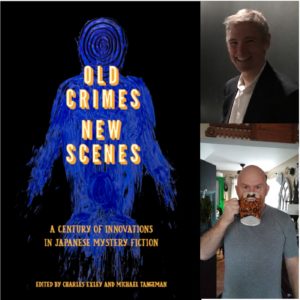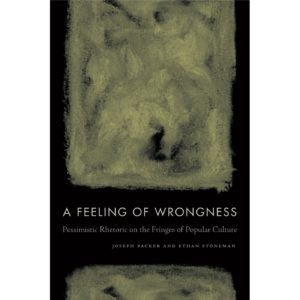Japanese mystery fiction book – “Old Crimes, New Scenes” (Published by MerwinAsia; distributed by the University of Hawaii Press, 2018) – Charles Exley and Michael Tangeman interview
Podcast: Play in new window | Download
Subscribe: Apple Podcasts | RSS

Charles Exley and Michael Tangeman are academics who both study Japanese language and literature. They both have an interest in Japanese mystery fiction and the three of us spoke about their latest project, a collection of 13 Japanese mystery stories that span 125 years of Japanese history.
1:03 – The editors talk about how they got into studying Japanese mystery fiction.
4:49 – They talk about how they chose the 13 fiction pieces in the book. They wanted an anthology of works of authors not widely known among English speakers.
8:28 – They talk about styles of Japanese mystery writing.
14:18 – Michael talks about the change in gender roles in Japanese society and mystery fiction. They also talk about a story on the clash between the Meiji period and new society.
17:20 – They talk about the historical aspects of the stories.
22:57 – Michael talks about some of the post-WWII stories.
31:34 – They talk about other stories they wanted in the book but didn’t make it.
34:54 – They talk about translating the stories and interesting terms and words.
43:12 – Michael talks about how “The Code” moved him. Charles talks about “Bugs Moving on the Ground.”
46:05 – They talk about their time in Japan and how the sotires connect to their time in Japan.
1:02:24 – Michael talks about the book’s cover art.
Links of interest
https://denison.edu/people/michael-tangeman
https://www.deall.pitt.edu/people/charles-exley
For more of “The Art and Design of Sci-Fi and Fantasy, Mystery and Horror” please follow me on Facebook at crisalvarezwlc, on youtube at Cris Alvarez and on Instagram @crisalvarezscifi
Guests: Charles Exley and Michael Tangeman
Host: Cris Alvarez
Tags: science fiction, fantasy, art, artist, japanese mystery, high-brow, detective fiction, edgar allen poe, meiji, science fiction, train myster
 Christopher Paul teaches at the Seattle University where he focuses on applying tools rooted in rhetorical analysis to elements of new media, especially video games. We discussed his latest book on meritocracy in video games.
Christopher Paul teaches at the Seattle University where he focuses on applying tools rooted in rhetorical analysis to elements of new media, especially video games. We discussed his latest book on meritocracy in video games.